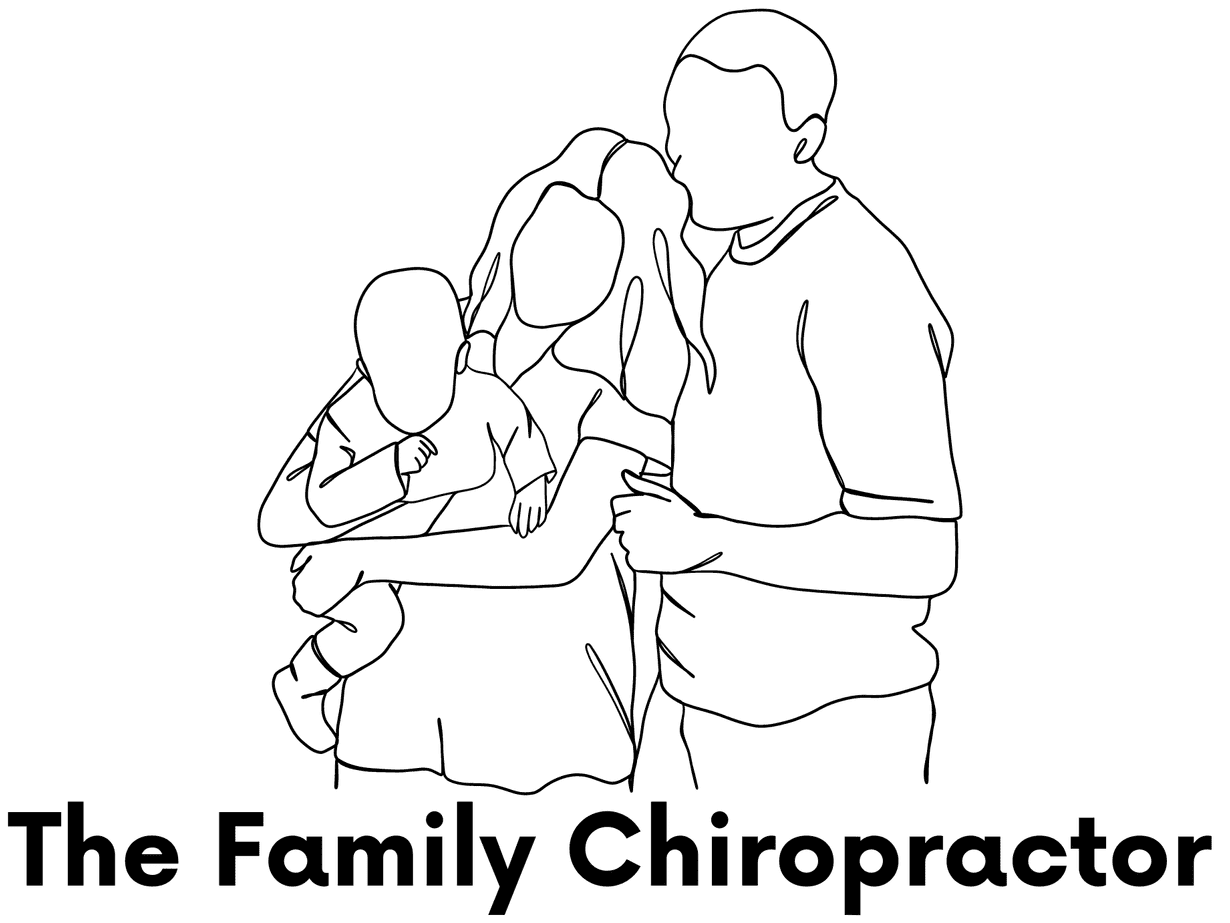

How to become a chiropractor - Training courses
There is a (huge) shortage of chiropractors in the Netherlands, as chiropractic is becoming increasingly well known and popular. The number of chiropractic practices in the Netherlands has almost doubled in the past 5 years (source: KVK) , while there is little new recruitment of Dutch chiropractors. Many of the chiropractors working in the Netherlands originally come from abroad. As a result, you have very high job security in the current circumstances if you have trained as a chiropractor, especially if you speak good Dutch. But how do you become a chiropractor in the Netherlands? Before you can get started, there are several training courses you will have to take and various requirements you have to fulfil.
Chiropractor training Netherlands
To get straight to the bad news: there is currently no chiropractor training in the Netherlands. So it is not possible to complete your chiropractor degree in the Netherlands, and you will have to study abroad if you want to work as a chiropractor here. However, there are rumours of plans to start a Dutch chiropractor training programme. This would be a course that works together with the Barcelona College of Chiropractic (in Spain), but unfortunately these plans are not yet concrete enough to give a real prospect of training as a chiropractor in the Netherlands. As soon as there is more news about a possible chiropractor training in the Netherlands, we will write more about it immediately on this page. So although a chiropractor training course in the Netherlands does not exist at the moment, it is possible to study abroad and then start working in the Netherlands.
Chiropractor training abroad
Since there is no chiropractor training in the Netherlands, it is necessary to do your training abroad if you want to become a chiropractor. Many Dutch students choose to study at a university relatively close to the Netherlands, such as the Anglo-European College of Chiropractic (AECC) in England or the University of South Wales in Wales. These programmes offer both undergraduate and graduate programmes in chiropractic. You need both a bachelor's and a master's degree if you want to work as a chiropractor in the Netherlands. Below, we have summarised some highly regarded chiropractic programmes abroad. All these programmes are recognised by international and national chiropractic associations.
In the overview below, you can compare chiropractic training abroad:
| Country | Training / College | Location | Comments |
|---|---|---|---|
| United States | Palmer College of Chiropractic | Davenport, IA; San Jose, CA; Port Orange, FL | Campuses in three states. First chiropractic school in the world. DC programme. |
| Life University | Marietta, GA | DC programme. Holistic approach. | |
| Logan University | Chesterfield, MO | DC programme. Focus on evidence-based practice. | |
| Canada | CMCC | Toronto, ON | DC programme. Strong academic curriculum. |
| UQTR | Trois-Rivières, QC | DC programme in French. Practice-oriented. | |
| United Kingdom | AECC | Bournemouth, England | BSc & MChiro. Strong clinical curriculum. |
| WIOC | Pontypridd, Wales | MChiro. Much emphasis on clinical experience. | |
| Australia | Macquarie University | Sydney, NSW | Bachelor & Master's degree. Strong research focus. |
| RMIT University | Melbourne, VIC | Double degree. Practice-oriented. | |
| New Zealand | NZCC | Auckland | Philosophy & clinical skills. Daniel studied here. |
| Europe | IFEC | Paris & Toulouse | French-language. Practice & research. |
| BCC | Barcelona | English-language programme (ECCE). Scientific approach. | |
| Scandinavia | NIC | Denmark | 5-year course. Clinical & scientific. |
| South Africa | DUT | Durban | Bachelor + Master. Clinical & research. |
| UJ | Johannesburg | Bachelor & Master. Cherie studied here. |

How to become a chiropractor - Requirements
Preliminary training
Additional Requirements
Depending on the country and the specific programme, there may be additional requirements for admission to chiropractor training. These may include admission tests, interviews and/or letters of recommendation. It is important to carefully research the specific requirements of the programme and the country where you want to study, and prepare for these requirements. Below, we describe some additional requirements that are often requested if you want to study chiropractic training
(English) language skills: if you go to an English-language programme, you often have to provide proof of your English language skills, for example through a TOEFL or IELTS exam. Language requirements can vary from one training institute to another, so also take this into account when choosing the university you want to go to.
Personal interview: some programmes require a personal interview to assess your motivation, communication skills and suitability for the chiropractic profession.
Letters of recommendation: Letters of recommendation from teachers, employers or healthcare professionals may be part of the admission process.
Cover letter: some training institutes ask for a cover letter explaining why you want to become a chiropractor, what your motivation is and why you chose that particular training.

How to become a chiropractor - Cost
The cost of a chiropractor education can range from around €20,000 to more than €150,000. Costs vary significantly depending on the country you are studying in, the specific educational institution you want to study at and whether you are a domestic or international student. Below, we have summarised the cost of tuition fees for a number of chiropractic courses. The table shows the estimated cost of chiropractic courses per year as well as the total cost for the entire course.
Cost of chiropractor training per institute
| Country | Setting | Tuition fees per year | Total Cost (training) |
|---|---|---|---|
| United Kingdom | AECC | £14.000 - £15.000 | £70.000 - £75.000 |
| United Kingdom | University of South Wales | £13.500 | £67.500 |
| United States | Palmer College of Chiropractic | $35.000 | $140.000 - $150.000 |
| United States | Life University | $36.000 | $144.000 - $150.000 |
| United States | Logan University | $30.000 | $120.000 |
| Canada | CMCC | CAD 25,000 - 30,000 | CAD 100,000 - 120,000 |
| Canada | UQTR | CAD 5,000 - 10,000 | CAD 20,000 - 40,000 |
| Australia | Macquarie University | AUD 35,000 | AUD 140,000 |
| Australia | RMIT University | AUD 30,000 - 35,000 | AUD 120,000 - 140,000 |
| New Zealand | New Zealand College of Chiropractic | NZD 30,000 | NZD 120,000 |
| Sweden | Scandinavian College of Chiropractic | SEK 100,000 | SEK 500,000 |
Scholarships and financial support for chiropractor training
Some institutions offer scholarships, loans and other forms of financial aid to help students cover costs. Obtaining financial aid can significantly help reduce the cost of your education and support you on your way to a successful career as a chiropractor. In the overview below, we have listed some scholarships for chiropractor training. Again, the listed scholarships are subject to annual adjustments. It is wise to contact the relevant institutions directly if you want more information about a scholarship for chiropractic training.
Overview of scholarships chiropractor training:
| Country | Setting | Scholarships & Support | Comments |
|---|---|---|---|
| United Kingdom | AECC | AECC University College Scholarships Student Finance England |
Scholarships based on academic merit and financial need. Loans and grants for UK students. |
| United Kingdom | University of South Wales | University Scholarships and Bursaries | Scholarships based on academic, athletic performance and financial situation. |
| United States | Palmer College of Chiropractic | Palmer Scholarships Federal Student Aid (FAFSA) |
Scholarships based on merit and financial criteria. Federal loans for US students. |
| United States | Life University | Life University Scholarship External Scholarships |
Scholarships for new and current students. External scholarships including through Foundation for Chiropractic Progress. |
| United States | Logan University | Logan Scholarships Chiropractic Education Foundation |
Scholarships on merit. Various scholarships through foundation for specific causes. |
| Canada | CMCC | CMCC Scholarships and Bursaries Canada Student Loans and Grants |
Scholarships on merit and financial need. Loans through the National Student Programme. |
| Canada | UQTR | UQTR Scholarships Government of Quebec Aid |
Scholarships for academic achievement. Loans & grants for Quebec residents. |
| Australia | Macquarie University | Macquarie Scholarships Government Scholarships |
Scholarships for domestic/international students. Government funding (such as HECS-HELP). |
| Australia | RMIT University | RMIT Scholarships Government Financial Aid |
Scholarships by performance, need and criteria. Loans & grants for students. |
| New Zealand | NZ College of Chiropractic | NZCC Scholarships Government Loans & Allowances |
Scholarships for domestic and international students. State loans/grants for NZ students. |
| Sweden | Scandinavian College of Chiropractic | Swedish Institute Scholarships CSN |
Scholarships for international students. CSN: Swedish student finance and loans. |
| International Organisations | N/A |
Foundation for Chiropractic Progress International Federation of Chiropractors and Organisations (IFCO) American Chiropractic Association (ACA) |
Scholarships for students contributing to chiropractic. IFCO: Scholarships for community engagement. ACA: Scholarships for academically and clinically outstanding students. |
How to become a chiropractor - Skills needed
Chiropractors need to master a wide range of skills and attributes to be effective and successful in their profession. Below, we describe the key skills you need to master if you want to become a chiropractor.
Do you want to become a chiropractor? Chiropractors need to master a wide range of skills and attributes
Clinical and technical skills: chiropractors must master various manual techniques and manipulations to correct spinal and joint problems. They must be able to work accurately from a person's medical history, perform physical examinations and, in some cases, work with diagnostic tests such as X-rays. In-depth knowledge of anatomy and physiology, especially of the musculoskeletal and nervous systems, is essential. In addition, chiropractors must be able to guide patients through exercises and rehabilitation methods to promote recovery and prevent injury.
Communication skills: interpersonal skills are crucial for building good relationships with patients and putting patients at ease. Chiropractic is still relatively unknown in the Netherlands, and people can find it very exciting to see a chiropractor for the first time. Active and empathetic listening to patients is crucial to fully understand someone's situation, their complaints and concerns. Chiropractors must be able to explain treatment options and care plans clearly and understandably to patients, always keeping in mind someone's unique situation. This requires excellent communication skills.
Critical thinking and problem-solving skills: analytical thinking enables chiropractors to analyse complex medical information and symptoms and make an accurate diagnosis and treatment plan. Being able to make quick and effective decisions about the best treatment methods and care options for patients is an important skill if you want to work as a chiropractor
Empathy and caring: this may be an open door, but without empathy and caring, you will get nowhere as a chiropractor. Empathy is necessary to understand patients' feelings and perspectives. Patience, compassion and persistence are essential when treating patients, especially in long-term treatment and recovery processes.
Physical skills: good physical fitness is important to cope with the physical demands of this work. The so-called 'chiropractic adjustments' require strength and flexibility from the chiropractor, and you are physically engaged for almost your entire shift. In addition, chiropractors must have good hand-eye coordination to perform precise movements and ensure safe and effective adjustments.
Curiosity: willingness to continuously learn and keep abreast of the latest developments and techniques in chiropractic are essential. In the Netherlands, every chiropractor is required to attend a number of refresher courses per year. This works on the basis of a points system, in which you have to achieve a minimum number of points per year to demonstrate that you keep developing yourself continuously.
Frequently asked questions
How long does it take to become a chiropractor?
Studying to become a chiropractor usually takes between five and eight years, depending on the country you study in and the specific course you take. However, this can take longer if you need to do relevant preliminary training before you can start your bachelor's degree in chiropractic. In addition, many chiropractors also take various specialisation courses after completing their studies, such as a specialisation to include babies and pregnant to be able to treat or a specialisation in chiropractic for animals. An average chiropractor has often studied for at least eight years.
Is it difficult to become a chiropractor?
Chiropractor training is widely regarded as challenging and demanding. This is due to the required combination of scientific knowledge, practical skills, critical thinking and strong communication skills. While training can be challenging, it offers the opportunity to pursue a valuable and fulfilling career in which you can have a direct impact on the health and well-being of your patients. And what could be better than helping other people improve their health! For students who are willing to work hard, have perseverance and are passionate about chiropractic, the programme is definitely worthwhile.
What are the employment prospects for chiropractors?
The employment prospects for chiropractors in the Netherlands are very good. There is a huge shortage of chiropractors in the Netherlands, as there is a growing demand for chiropractic care and there is no chiropractor training in the Netherlands so far. As we have an ageing population in the Netherlands, the demand for chiropractic care is increasing. Elderly people more often suffer from (musculoskeletal) conditions in which chiropractic treatments can be particularly effective. There is also a growing awareness among the Dutch population about the importance of preventive and alternative healthcare. Chiropractic is increasingly accepted as an initial treatment option for various health problems, and seen less and less as an 'alternative' medicine (although this is where it falls for the Dutch health insurance companies currently still under). With the increasing demand for chiropractors in the Netherlands, you have a very good chance of being able to start working at a chiropractic practice immediately after your training.
What exactly does a chiropractor do?
Would you like to become a chiropractor, but want to know more about what exactly a chiropractor does? Then read our blog on this topic!




